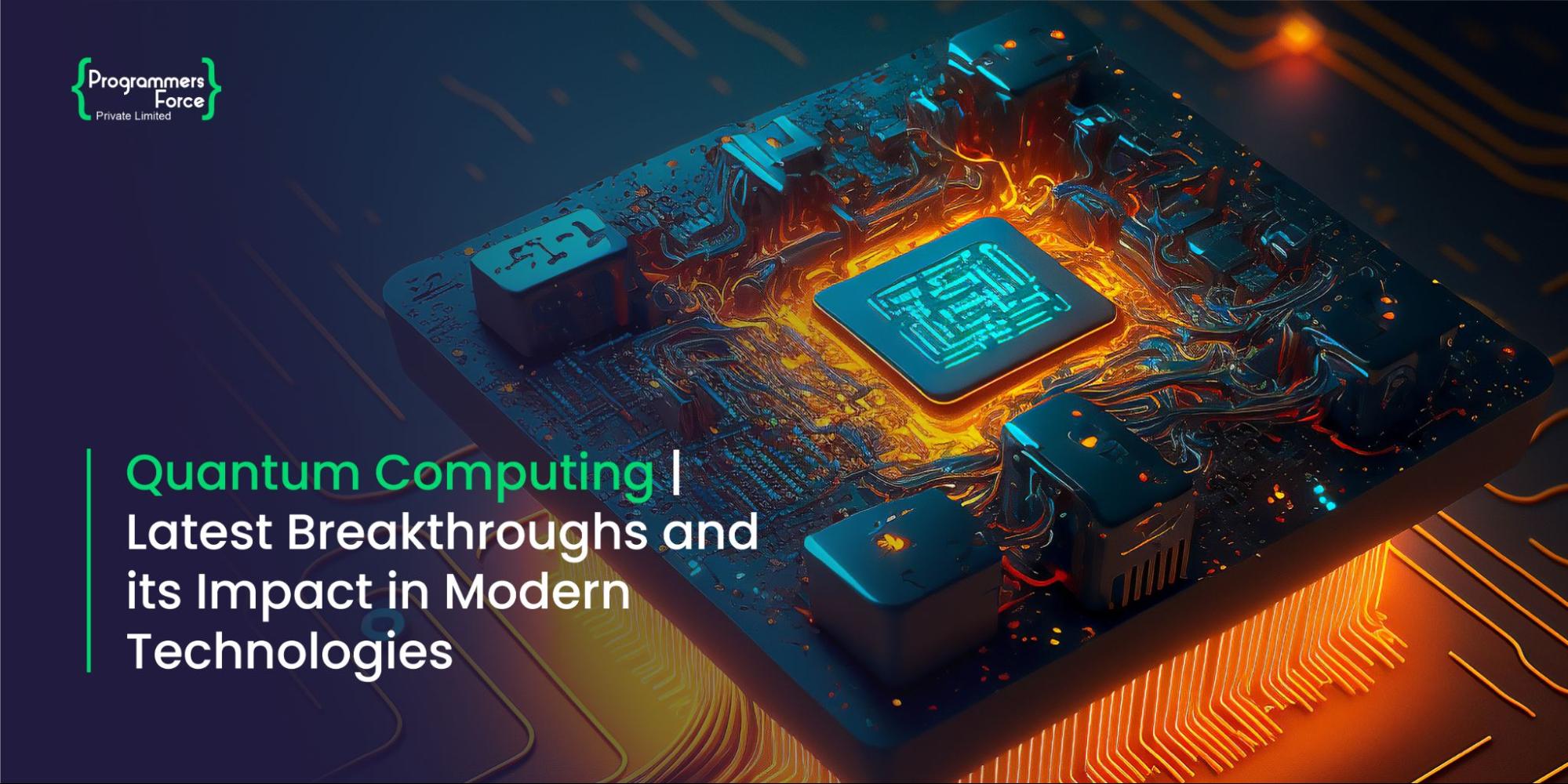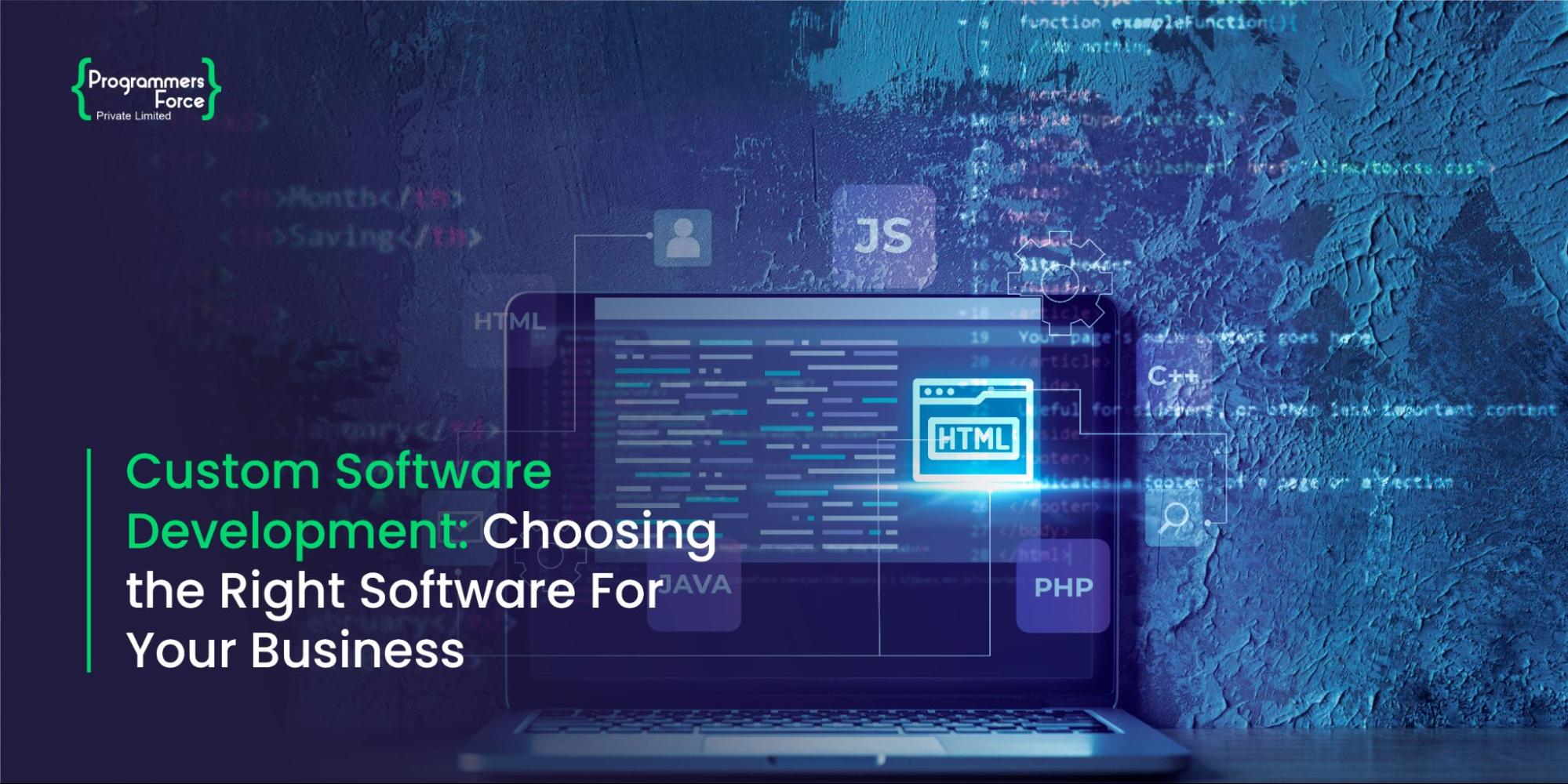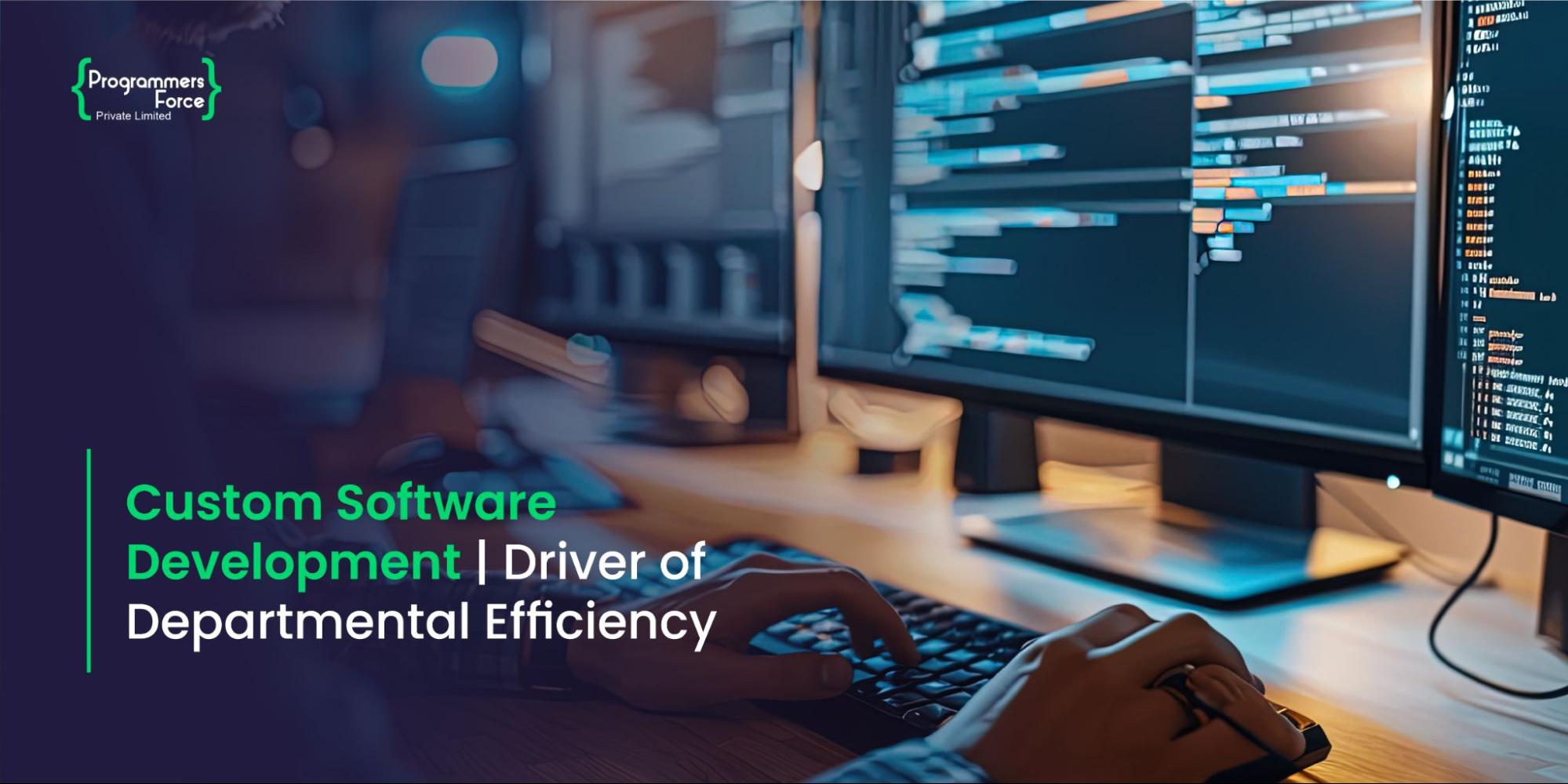
Quantum Computing | Latest Breakthroughs and Its Impact in Modern Technologies
Big innovations happen when technology advances, and computing devices get smaller. In the next few years, the world will learn that technology taking over the realm is no longer a narrative but an actual computational paradigm. However, quantum theories and their involvement in the tech domains have reshaped the industry.
While exploring the domain of computer science, it is observed that quantum computing is the groundbreaking sphere that works on the principle to solve the complexities, unlike standard computational models that comprehensively rely on bits representing data in the form of 0 or 1. The latest study estimated the quantum computing global market at $1.40 billion in 2024 and is forecasted to increase up to $9.95 billion with a CAGR of 38% in the next 7 years. The anticipated time period for this study ranges from 2024 to 2030, providing a global market analysis of quantum technology.
Read this Blog to Understand:
- What is Quantum computing?
- Standard Vs. Quantum computing
- Quantum technologies impact industries
- How does Quantum computation work?
- Quantum technology and AI
- Latest developments in Quantum computing
- Careers and job opportunities in Quantum computation.
- Frequently asked questions
What is Quantum Computing?
Quantum computing is a sophisticated technique that allows parallel calculations on large datasets using the principles of quantum theories. Quantum computers are referred to as innovative technologies that are too complicated for the standard systems working on qubits. The computers use subatomic particles that enable the qubits to exist in multiple states. These machines contribute to finance, intelligence, and designing new and complicated data patterns. The increasing demand for high-speed machines has driven the innovation of fast and efficient quantum computers.
Quantum Vs. Standard Computing – A Quick Overview
Let’s explore a brisk outline of quantum computing and standard machines:
| Quantum Computing | Standard Computing |
| Quantum computers are basic with no memory and processors, using a set of superconducting quantum binary digits. | Classical machines have storage and processors and comparatively complicated structures. |
| These machines use qubits to process information running on multidimensional algorithms. | Standard computing utilizes bits to operate programs with less power due to the addition of more bits. |
| Quantum computation is best for high-level tasks, including data analysis and running simulations. | Classical computations are used in everyday tasks with low error rates and do not require extra care. |
| These machines need protection from the slightest vibrant and require a cold storage place. | Standard computers can be kept anywhere with just a single internal fan. |
How does Quantum Computation Work?
Quantum computers function distinctly compared to standard machines. They execute information in qubits and store data in the same format. However, what makes quantum computation unique is its simultaneous existence in multiple states. Regardless of the distance between qubits, the computers have the ability to perform operations that lead to fractional processing power. The quantum binary digits experience various operations involving manipulations and complexities in performing calculations. Therefore, they are radically different from standard computers.
Impact of Quantum Technology on Industries
Quantum processors and computational technology have optimized complicated logical systems and accelerated operational efficiencies and innovations in the industry. It has disrupted the entire industry, from government sectors to defense agencies and high-tech platforms. The strong impact of data processing, security, visualization, and digital commerce has pushed sectors to integrate quantum technologies to drive advancements and stand as a competitive edge in decision-making procedures.
The unparalleled ability to deal with complications at unprecedented speed can easily crack the code that a conventional computer may take centuries to decode. However, quantum technology is far-reaching and still in its nascent stage.
Quantum Computing and Artificial Intelligence
Significant power is enabled by quantum processors in the execution of massive datasets that assist AI systems in inspecting and detecting complicated patterns. Quantum computing offers new aptitudes to perform tasks more efficiently and instantly with the integration of neural networks and Natural Language Processing (NLP). The involvement of quantum technology has enhanced the applications and the accuracy rate of prediction results by reducing the low-frequency rate of errors.
The CEO and founder of Ilyas Khan said that “standard electronic computers can never be able to comprehend the grammar rules and word patterns.” Its intelligence is way out of the standard computers due to the limited resources. Moreover, quantum annealing generates new AI algorithms working beyond the principles of physics and classical laws. However, AI and quantum technology have worked together in the past years, aiming to take technology to the next level.
Recent Developments of Quantum Computing – A Splendid Breakthrough
Chatbots are everywhere these days, be it any business application or social media platforms; the integration of quantum technology and AI has improved communication structure. The ability to handle extensive datasets while processing them quickly has captured the attention of multiple brands and multinational companies. Following are some of the latest developments shaping the future:
Quantum Hardware Innovations
Researchers in this domain are on a mission to explore new approaches and techniques to build more scalable quantum binary digits (qubits). Furthermore, trapped ions and topological and superconducting qubits are technologies that are examined to create quantum processors. Multiple companies are investing in developing these mainframes, pushing the limits of quantum computation abilities.
Quantum Error Correction Advancement
The critical challenge of the development process is the error corrections in quantum computers. However, in recent breakthroughs, error correction codes perform fault-tolerant quantum computations. IT experts are discovering distinct methodologies to eliminate the risk of errors by enhancing reliability and credibility.
Quantum Cloud Services
A recent development includes cloud services that enable users to access quantum processors and examine their algorithms. Quantum cloud service eliminates the need for in-house hardware, offering users a platform to experiment, run, and test quantum algorithms and applications while gaining hands-on experience.
Quantum Software Ecosystem
There has been a flood of new developments in the software landscape, including programming languages, algorithms, and designing tools that assist quantum computers in executing. Multi-national quantum computing companies provide developers with upgraded software and libraries to create programs like never before.
Career Growth and Opportunities in Quantum Computing
With the advancement of AI technology and increased demand for speedy machines, the domain of quantum computing and careers are rapidly evolving. Candidates are required to be familiar with quantum hardware, technologies, and architectures. Additionally, experience with tools, platforms, and information processing are the preferred skills. Some of the rising career opportunities include:
- Quantum control engineers
- Quantum software developers
- Quantum error correction specialist
- Quantum Program director
- Quantum hardware engineers
Join Programmer Force to Explore Quantum Revolution
Quantum computing is the rapid advancement emerging as the next model with exceptional capabilities and problem-solving techniques in the intricate world of technology. Programmer Force provides a platform where technology meets quantum revolutions. We at PF focus on innovative quantum algorithms, programming languages, and extensive market research to tackle the real-time problems that were once unattainable. For candidates looking to push the limitation of innovation, whether a beginner or a professional coder, PF offers resources and training programs to polish your skills and contribute towards a quantum-driven future.
Frequently Asked Questions (FAQS)
What Does a Software Engineer Do?
A software engineer is a candidate who designs, develops, tests, and maintains applications on automated systems. These specialists manage the operations using their programming framework and language expertise. They use engineering principles to debug errors and provide clients with user-friendly applications or software.
How to Become a Software Engineer?
Candidates with technical backgrounds can excel in these professions by practicing the following skills that are:
- Understanding of programming languages
- Knowledge of coding frameworks
- Familiarity with cloud infrastructure
- How to operate automated systems
- Troubleshooting
- Articulate speech proficiency
- Multi-tasking
- Constant passion to learn something new
- Detailed Understanding
- Creative mindset










